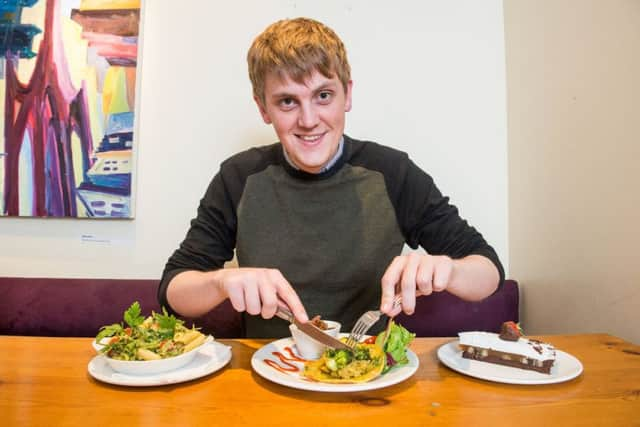Millions turn away from meat as Dry January fails to stop flow of booze


The supermarket sector remains in growth – up 1.7 per cent compared with this time last year.
Aldi and Lidl continue to lead the field after 18.3 million households shopped in at least one of them over the past 12 weeks, latest market share figures from Kantar Worldpanel for the quarter to January 27 show.
Advertisement
Hide AdAdvertisement
Hide AdThe healthy results were boosted in part by the strong performance of fresh produce for ‘Veganuary’, but overall sales were down £1.5 billion compared with December as shoppers kept a watchful eye on bills following their record-breaking Christmas grocery spending. Fraser McKevitt, head of retail and consumer insight at Kantar Worldpanel, said: “Looking back on 2018 as a whole, one of the most notable consumer trends is the shift to a more plant-based diet. Today, 1 per cent of all households include a vegan, 5 per cent have a vegetarian and 10 per cent have flexitarians in their ranks.
“This move has contributed to consumers eating a total of 4.4 billion meat-free dinners in 2018, an increase of 150 million meals on the year before.”
Cucumbers, carrots and berries in particular proved to be shopper favourites, rocketing by 26 per cent, 22 per cent and 13 per cent respectively.
Meanwhile, more than two-thirds of customers bought an item labelled Free From - either dairy or gluten free - over the past month, with dairy alternatives like plant milks making up a quarter of total Free From sales.
However, the health focus appears not to have extended to alcohol, with total sales seeing growth of 10 per cent in the last four weeks.
Just over half of households (53 per cent) bought alcohol in January. Sales of non and low-alcohol beers jumped by 79 per cent but gin sales also increased by 23 per cen t.
With the exception of the discounters, Co-op was the only retailer to gain market share over the quarter at 5.9 per cent - up 0.1 percentage points on this time last year - boosted by an additional 346,000 consumers visiting its stores and sending sales of its top-tier Irresistible range up by 9 per cent. Tesco increased sales by 1 per cent - its fastest rate of growth since September 2018 - but its market share is down 0.2 percentage points on this time last year at 27.7 per cent.
Figures from analysts Nielsen also show growth in fresh produce was up 1.5 per cent over the four weeks to 26 January.